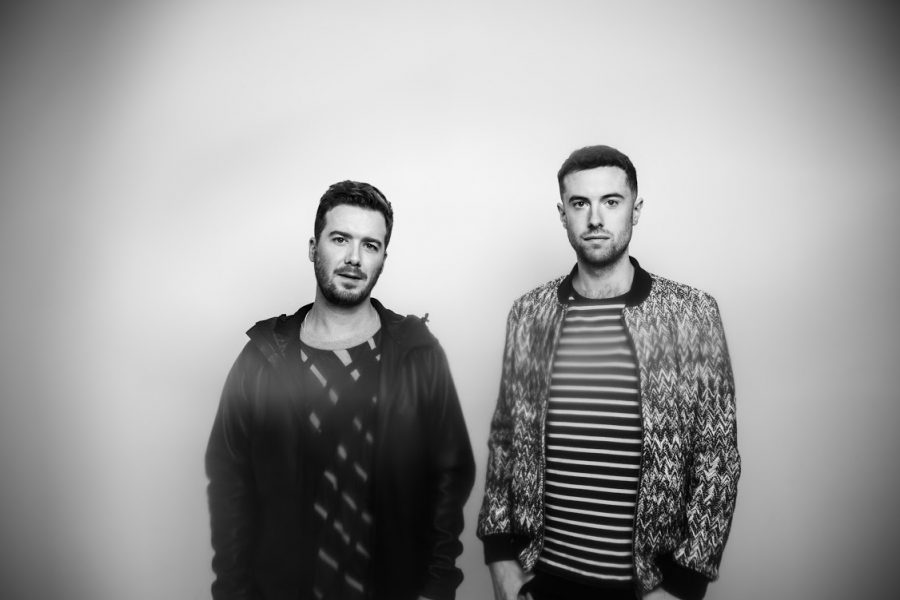It’s a cold Thursday night as I walk into The Complex, or more accurately, the ghost of the Complex. I am here to see Gorgon City play, but walking through the doors I see that almost nobody is here, and with the show just 15 minutes away, I worry that I have made a mistake. But I haven’t. I am just one of few who bothered to show up. After taking a scenic route to the bathroom and moderating an internal debate on the merits of buying a soft pretzel, I awkwardly wait for the show to begin, feeling like a shmuck who’s been stood up for a blind date.
At 8:30 p.m., when the concert is supposed to begin, a DJ walks up on stage and house music begins to play: loud, hollow and apocalyptic in the empty space. I alternate glances at the DJ and the other 10 people in the room. This is not what I asked for. For me, concerts are mostly about the anonymity, the feeling of letting go and experiencing music as part of a large, faceless mass. This, on the other hand, feels intensely individual and awkward. I feel way too visible, and pray that the DJ and I don’t make eye contact. After all, you never hear someone advise you to “dance like the opening act is watching.”
As the crowd slowly builds, I take to people-watching, half as a journalistic exercise and half as a coping mechanism. At this point, most pump their fists or bob their heads; their movements are small and self-conscious, designed to be hidden by the big crowd that isn’t here. One man with long brown hair, a lip ring and a grey knit cap conscientiously objects to the blandness, with an enthusiastic interpretation of pop-and-lock demonic possession. He seems completely transfixed by the music, and while I do not relate, I do admire his commitment.
I check my watch. Less than half an hour has passed. House music is intentionally repetitive, baselines slowly morph and songs are not clearly separated. As a critic, I might say that the illusion of endlessness is important to the genre’s appeal. Or I might say that the repetition turns songs from numbing to thrilling to numbing again. But as an uninitiated man in the crowd, I can only say that it seems like the same song has been playing since the Bush administration.
Looking over my shoulder, I notice that the bar in the balcony above the concert floor seems decently busy. I curse myself for stupidly being 19 years old. I should have brought a fake ID, which is to say that I should own a fake ID in the first place, which is also to say that I should be the kind of person who even wants a fake ID, which is to say that I sealed my fate years ago. When the two roads diverged in the yellow wood, I chose the one with high school debate tournaments.
An hour into the concert, a blonde teenager senses my confusion and starts a conversation with me. Her name is Sophia, and she introduces me to many members of the slowly growing crowd. Sophia, I learn, is a regular at house concerts, and many of the attendees know each other. Maybe this should make me feel better, but instead I feel like an intruder at a family Christmas party, pretending to laugh at all the inside jokes. When I tell Sophia the painfully obvious fact that I have never been to one of these concerts before, she makes it her personal mission to initiate me into the fold. Her unchecked enthusiasm recalls a new Mormon missionary, or a salesman in an essential oils pyramid scheme. I act responsibly, look for the nearest exit door, and promise myself that I will run away if she offers me Kool Aid.
As the night passes on, the lifelessness of the room slowly dissipates. Apparently coming before the opening act is a rookie mistake. But now, almost two hours later, the concert finally feels real. There is a remarkable mix of people here dancing, laughing and mingling. My eyes are drawn to a striking twenty-something man. He is already tall, and with the help of enormous high heels, he makes my 6’1” frame feel prepubescent. I start to wonder what his life outside these doors must be like. Does he dress like this anywhere else? Could he? But in this room, next to the woman with fishnet stockings and light up sneakers and the interpretive dancer with a light-up hula-hoop, he perfectly belongs. Around the venue, he does not walk so much as strut; he looks happy and free and alive in a way that you only can if you have found your people, and your people have found you.
By now, I have lost Sophia, and I start to feel bad for my attitude earlier. But now that I have the anonymity that was missing at the beginning, I realize maybe that it is overrated. Nights like this are really about community, and about using music as a vehicle to form connections and realize that you’re not alone. Maybe these are not my people, but plenty of music will lead me to find my people, and that is something worth celebrating at any concert. And the next time this concert does come for me, I’ll remember to be fashionably late.
j.petersen@dailyutahchronicle.com


